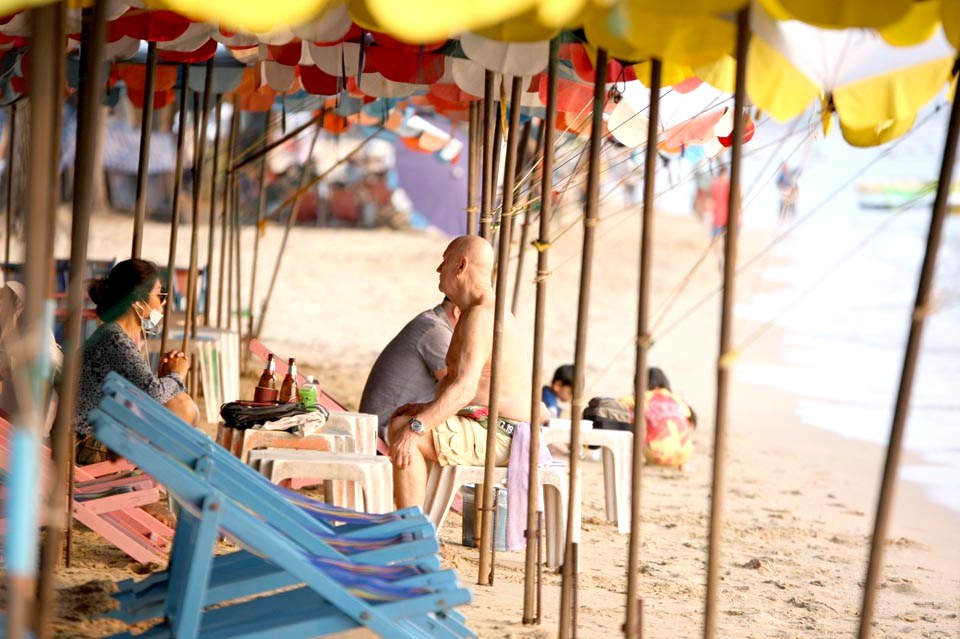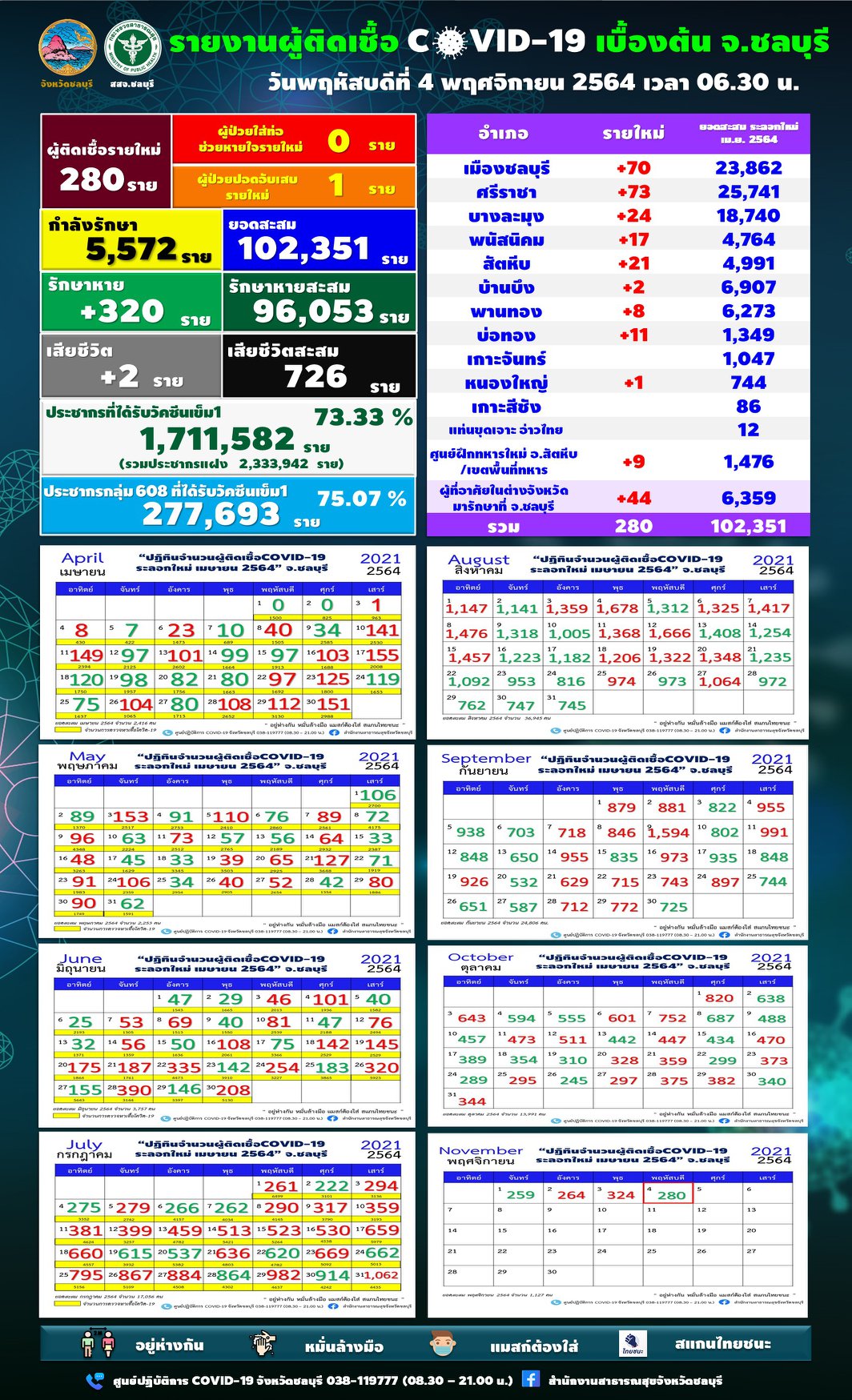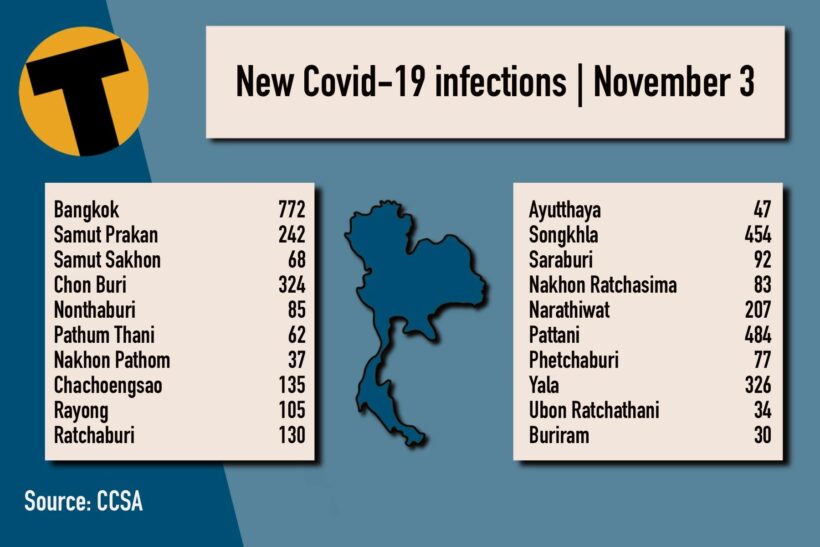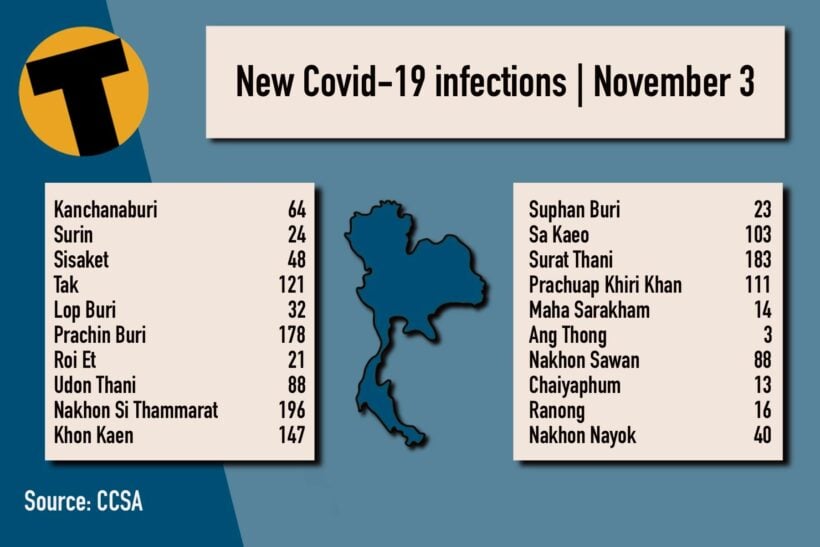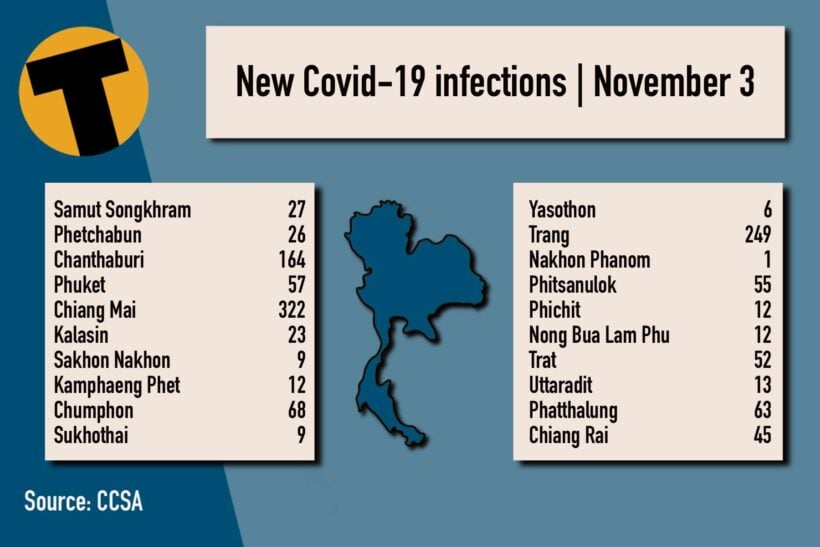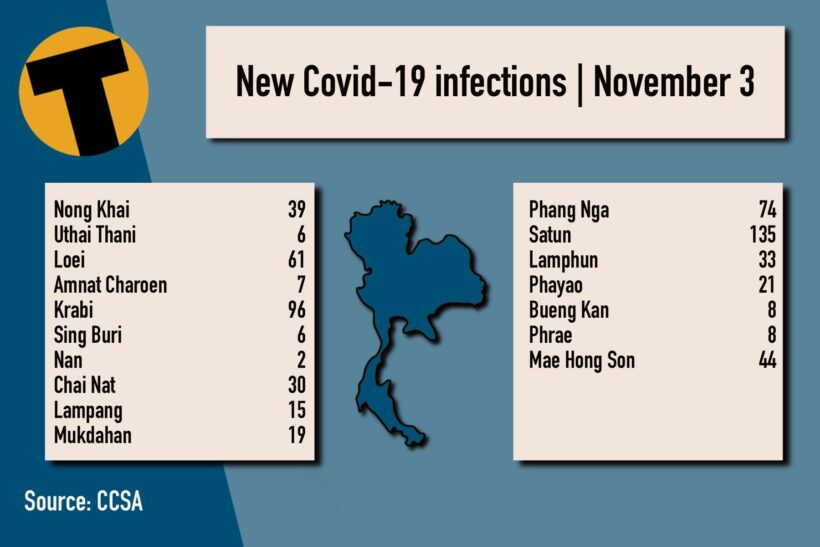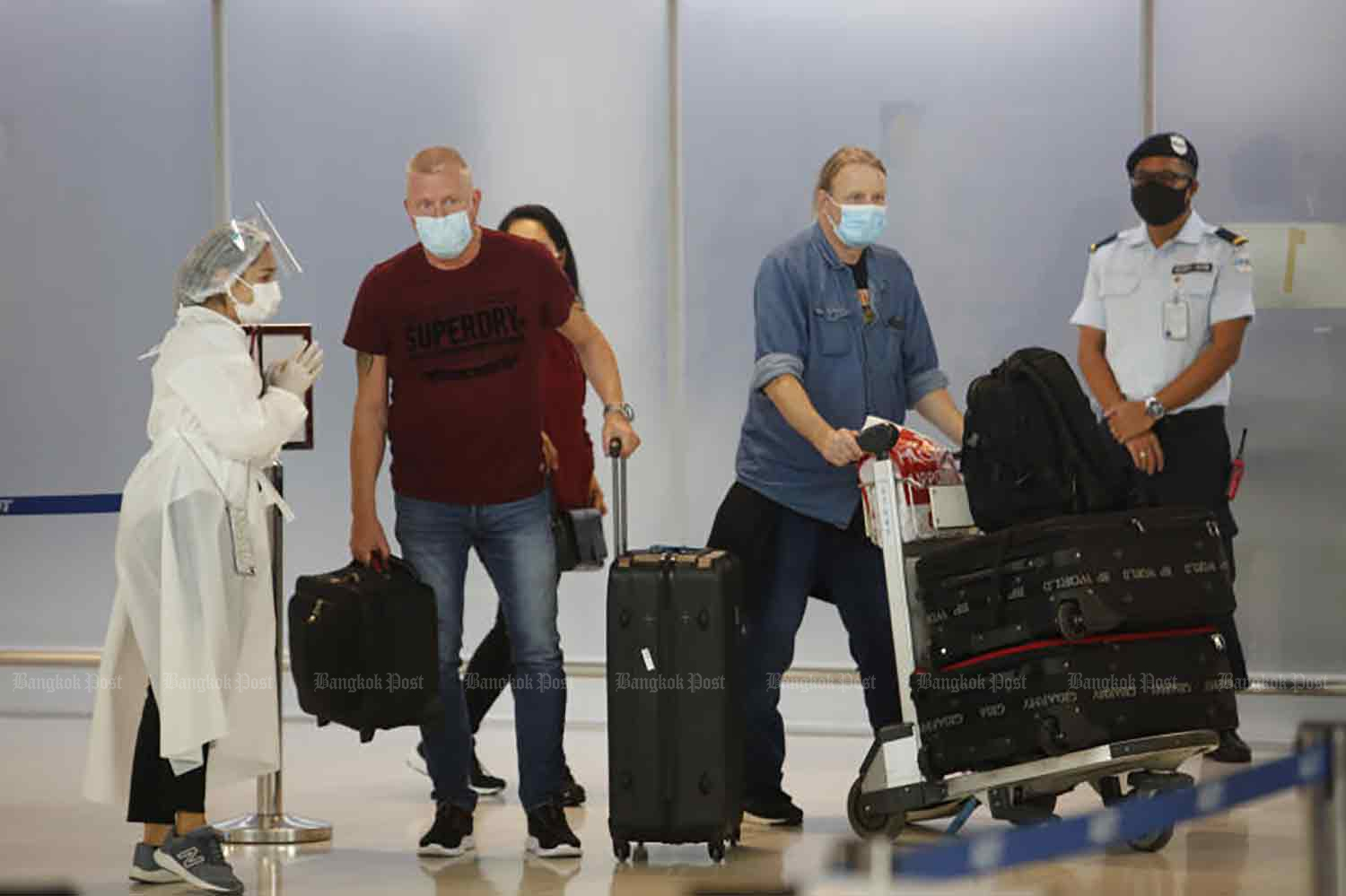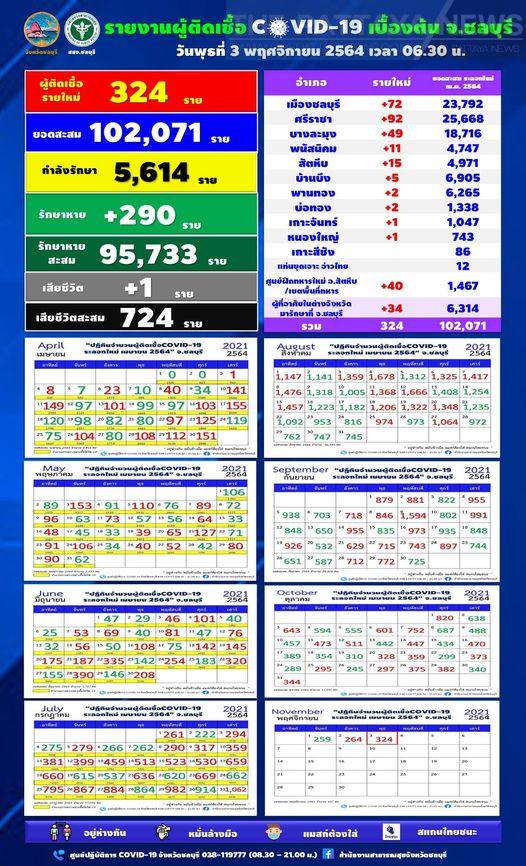I want to start this newsletter with some really good news. After a bumpy start to the launch of the Thailand Pass system, I have finally received approval of my application and my QR Code. From the time that I submitted my documents, until the first email saying that my documents had been received, was about 12 hours. The email said that it could then take as long as seven working days to receive approval. However, as it turned out, it was only 12 hours later that I received the approval email and QR Code. So, just over 24 hours in total. Some people had told me they were quicker and others said they are still waiting. For the latter group of people, it is maybe taking longer because their insurance and vaccination certificate has to be verified. In my case my documents are all from Thailand.
One more good piece of news for expats is that my social security number (SSO) was accepted as proof of insurance. So, if you have SSO, you don't need to buy any special insurance when you go abroad for a short holiday. For people who need proof of social security, I used this link ssoconnect.mywallet.co and entered my SSO number and telephone number. I was then given a link to add the QR Code to Apple Wallet. Then I did a screenshot and uploaded it to the Thailand Pass system. The Ministry of Foreign Affairs also tells me, if you don't have SSO, then you can use your regular private insurance for the application and it doesn't have to be exclusively for Covid-19. For other people, you need to buy special insurance that covers the remaining length of your visa.
Over the last week, I have applied for both the Certificate of Entry (COE) and the Thailand Pass and so I think I am in a good position to do a comparison of the two systems. Thailand Pass was touted as a much more simplified system that will streamline your experience. Yes, they did have some teething problems during the first day with server errors, but that kind of thing is not unique to Thailand. Hopefully that is all sorted by now.
Unlike the COE application, your documents are not sent to your local Thai Embassy but to the Consular Department in Bangkok. From what I understand, the local embassy may help with the verification of vaccine certificates and insurance, but everything else is done in Bangkok. One of the complaints before is that the local embassies were never consistent with each other and their interpretation of the rules varied. Hopefully this system will be fairer.
The number of documents you have to upload for each system are similar and so that doesn't make much difference. However, I uploaded a screenshot of my passport but they didn't ask to see my visa (in my case it is a re-entry permit) which they wanted for the COE. I also uploaded my vaccination certificate and my hotel booking. For the latter, it was a package that included an RT-PCR test and hotel transfer. From what I understand, you have to book the test through the hotel and you definitely cannot make your own way to the hotel. The government are also trying to standardise, or at least limit the maximum cost of the tests. The Thailand Pass system also didn't ask for proof of flights. Just the dates. By the way, if you need to change these dates you need to make a new application.
The COE took me only three days to get it approved and to receive the actual certificate. For Thailand Pass, the same process only took 24 hours. Some people told me it took them less and others said a bit longer. The maximum time is seven working days. So make sure you apply far enough in advance so you won't miss your flight. I think it also speeds it up if your insurance and vaccination certificate were issued in Thailand. What makes the Thailand Pass really stand out is that once you reach Thailand, all you have to do is show your QR Code and your negative RT-PCR test. (The latter has to be done within 72 hours of departure.) For the COE, you need to print out all of the documents that you had submitted online and then present them for checking along with your COE. So more time consuming at the airport.
For me the uploading of documents to Thailand Pass was easy. I had all of the documents already on my iPad. As the system doesn't as yet accept PDFs, I just did screen shots and uploaded these to the site. One problem that has been recognised is that you can only upload one file for each section. So that might be an issue for say insurance. Hopefully they will rectify that soon. Another problem is the Johnson and Johnson is one jab but it created an error as it wanted details for two jabs. I am sure there may have been other errors like this and hopefully these will be ironed out soon.
I am still getting lots of questions from people about why their country is not on the approved list. Please be assured, that there will be another update to the list on 1st of December. Maybe sooner. Initially they released the names of 46 countries and territories, and then much sooner than expected, they increased this to 63. Hopefully some good news for you soon. Maybe as early as two weeks.
The new rules started on 1st November. A review of this is expected to take place in a couple of weeks. I was told by a senior TAT executive that we might see a relaxation in some key areas. For example, in the near future, there is a good chance that they will stop the need to have an RT-PCR within 72 hours of departure. So, you would only need to do an RT-PCR on arrival in Thailand. I am also told that in the future, maybe in December, this test will be changed to the cheaper lateral flow test. I presume this would mean that if this is done at the airport, then it would literally be a Test and Go and you wouldn't need to stay one night in a hotel. Let's see. This is what they want but it is not known how soon that can start.
Another development they want to happen soon is the changing of the exception age for unvaccinated children. For Test and Go, it is presently only for children under 12. The TAT want this to be changed to under 18, the same as for the Sandbox program. This could start as soon as the review in two weeks has been completed. If there are any developments on this I will let you know on my social media channels.
Another thing that is of concern to people coming to Thailand is the rule about High Risk Contacts (HRC). What are the rules if someone next to you tests positive on arrival? Before I tell you about the rules, I just want to throw in my two cent's worth of opinion here. Modern aircraft all have HEPA filtration which does a great job of cleaning viruses from the air. They also have a good process for ventilation which helps keep the CO2 levels down. So, in many ways a flight on an aircraft is safer than say a visit to your local supermarket. But that is not recognised as yet by authorities.
So, here are the HRC rules for people who test negative but were sitting near a person who tested positive on arrival. Before, everyone in the surrounding area were considered at risk and were put into quarantine. This has now changed. You will only have a problem if the person on your left or right tests positive. You are not considered a HRC if it is a person in front of you or behind you. So, on a flight like mine where there were only 50 people, I think the chances are high that you will have no one sitting next to you. In fact, when I checked in back in Bangkok, I made a point of asking for a seat that had no-one in front of me and no-one to my side. I will do the same on my return flight.
Next, the consequences of being a HRC. At the moment, I am told if you test negative but are sitting next to someone who tested positive, you are both taken to hospital for ten days. There is no home quarantine or hotel quarantine. However, they are now working on reducing this to only 3-4 days if you test negative on the second test. On the other hand, the person who tested positive has to stay in hospital for at least ten days. As always, I will post updates about this on my social media channels as and when I get anything new.
I think I have covered all of the latest developments in this newsletter. There is some information that I want to share with you about the 'Visit Thailand Year 2022' campaign, but I will save that for another time. I will stop here as I need to pack my bags and get ready for the flight home to Thailand on Wednesday morning. Thanks for reading this far. The next newsletter will hopefully be sent from the hotel in Bangkok once I get my test results.
